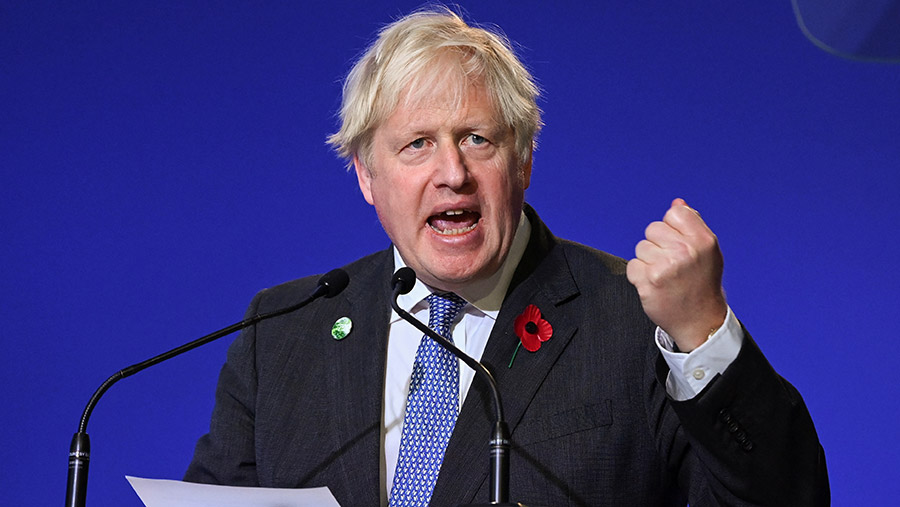FW Opinion: What is the value of a meaningless pledge?
 Reuters/Adobe Stock
Reuters/Adobe Stock As the saying goes: The road to hell is paved with good intentions.
It leapt into my mind this week as the world’s leaders sauntered back into their private jets, leaving their aides in Glasgow to haggle over the details of the two new headline pledges to tackle climate change.
One of these is an agreement to end deforestation and the other is to clamp down on methane pollution.
See also: COP26: UK Dairy Roadmap sets net zero climate targets
More details will become apparent in the weeks and months ahead about how this plan will be turned into reality and what it might mean for farmers. Or will they?
The scrutiny of this gathering has also cast a spotlight on the pledges made at previous climate conferences that remain unfulfilled.
Analysis published last month by Climate Action Tracker revealed that none of the largest greenhouse-gas-emitting countries have yet made sufficient plans to implement what they agreed to at the 2015 Paris climate accord.
Of the 36 countries, plus the EU, that together produce 80% of global emissions, only Gambia has made commitments that are forecast to be sufficient to do its part in limiting global warming to 1.5 degrees.
This is the diplomatic equivalent of an ageing farmer pledging a future cut in ewe numbers while simultaneously bidding on another lorry-load of mules.
So (with tongue firmly in cheek) here’s my proposal for farming’s great leap forward on climate action: Let’s just commit to doing everything asked of us by everyone – what have we got to lose?
Commit to the lot
Forget net zero, how about a commitment to sequester 1bn tonnes of carbon a year by 2050? Or by the week after next?
Perhaps while we’re at it, we’ll say we’re very happy to carpet every hectare we own in trees while also committing to make us self-sufficient in zero-emissions food as well.
If Brazil’s President Bolsonaro can commit to ending deforestation with a straight face after presiding over the destruction of an area of the Amazon seven times the size of London last year, then people might even believe us.
President Putin certainly seems to think he can get away with it, having made a promise to get to net zero by 2050 and another one to increase gas production by 50% by 2035.
Imagine if we all behaved like that. I might start by pledging to my boss that I’m going to sell 1m copies of Farmers Weekly every month in the future and promise the team a 500% pay rise when that happens.
Maybe you can pledge to never go into your overdraft, go a whole year without denting any machinery and never get behind with your Red Tractor paperwork.
And when the government, your boss or your other half come to ask if you’ve delivered on your pledges then you can say that your intention fully remains to deliver these ambitious reforms as soon as is reasonably possible. Job done.
Contact with reality
The serious point here is that governments can’t afford the perception that all their proposed solutions fail to survive their first contact with reality.
This is not just farming’s problem, but this week we hear about significant shortages of trees for planting as supply of imported saplings fails to keep up with demand, meaning landowners will be delayed in hitting their targets for environmental schemes.
Even the best of intentions sometimes have unintended consequences.
After the Glasgow jamboree is over, the high-powered rhetoric needs to be rapidly abandoned and replaced with achievable tasks that can be taken seriously. A small truth is better than a big lie.

